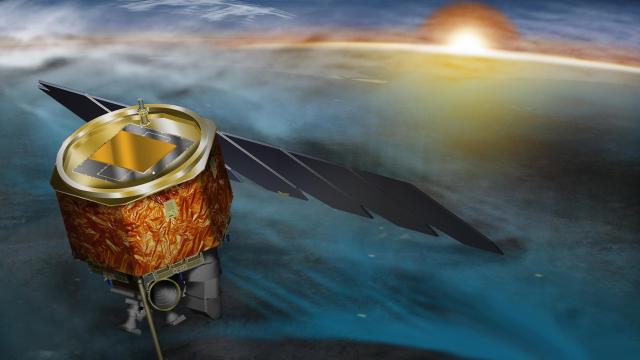For the past 15 years, a small NASA spacecraft has explored the edge of space, probing the elusive clouds that form in Earth’s mesosphere. But the spacecraft is no longer operating the way it used to, forcing the team to end its mission.
NASA’s Aeronomy of Ice in the Mesosphere, or AIM, officially wrapped up operations after a loss of battery power that rendered it unable to transmit data, the space agency declared on Thursday.
AIM started experiencing issues with its batteries back in 2019, yet the spacecraft was still considered healthy enough to be able to return a decent amount of data back to ground control. But things have recently gotten worse for AIM, and the spacecraft hasn’t even been able to collect data, let alone receive commands from mission control, according to NASA. Unfortunately, it’s not possible for NASA to change the battery on AIM — a spacecraft that’s orbiting 595 kilometres above Earth’s surface.
The team behind the mission has called it quits, although they “will continue to monitor AIM’s communication for two weeks in case the spacecraft is able to reboot and transmit a signal,” NASA wrote in its statement.
AIM launched on April 25, 2007, and has been orbiting Earth in a near-circular, Sun-synchronous orbit, which means it crosses above any given point on our planet at the same local time. From its vantage point, AIM looks down on Earth’s highest clouds that form over the North and South poles. The goal is to figure out why these night-shining clouds, which can only be seen near twilight, form.
The mission was only slated to operate for two years, but clearly ran way past its expiry date. During its orbital stint, data collected by AIM led to 379 peer-reviewed scientific papers. Bye AIM — you sure had quite the run.
